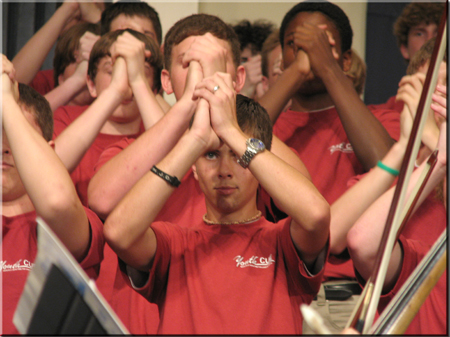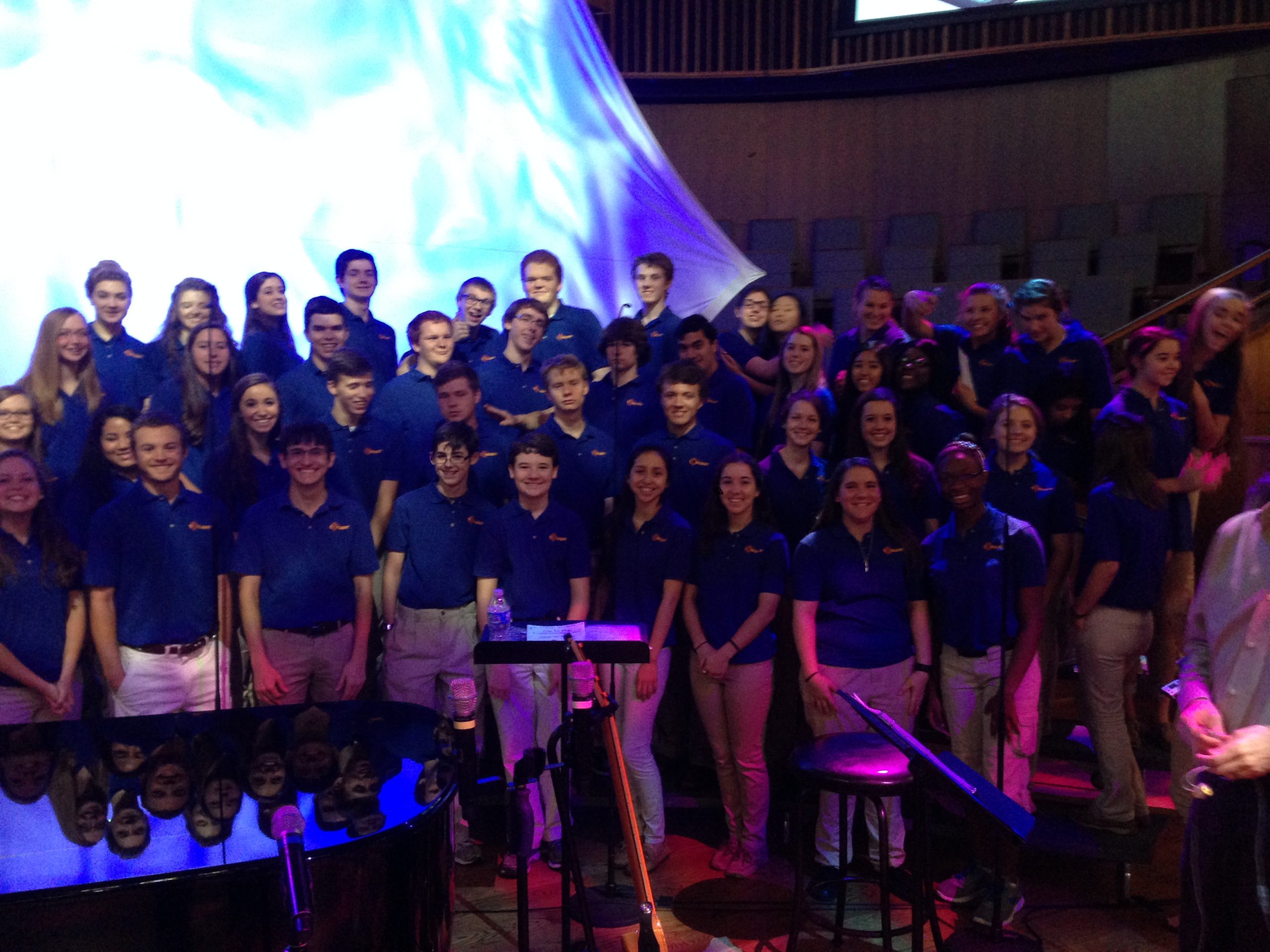This is the SECOND of two postings from Carey Cannon’s sessions at “Alleluia” Conference at Baylor University in Waco. (YouthCUE is one of the sponsors of this annual event.
This month I would like to introduce Dr. Carey Cannon, Minister of Music and Worship at South Main Baptist Church in Houston. As a clinician he is perfect—he has the (bass) voice of authority and the passion of a committed traveler on the way. He loves to make great music, but more importantly, he loves to make fully-devoted followers of Christ.
Here is another excerpt of his youth choir seminars.
The Ever Changing Youth Choir
Interview singers every year one on one. In the interview talk about their activities at school that they love—sports, band, orchestra, cheerleading, flag corp, etc.
This will give you insight into the level of responsibilities that the students carry.
Ask about their favorite subjects and what they like most about school.
Talk to them about their calendars, both weekly and major events that are coming up for them. Share with them the youth choir calendar and what level of commitment you anticipate from each member.
Inquire about their home life, recognizing that sometimes a teenager needs an uninvolved adult just to listen to them.
A director can gain insights into behavior, attentiveness, etc. just by listening to what a student’s home life is like.
Finally, vocalize them in a low pressure way, not like a soloist, but listening for their comfortable top note and singable lowest note. Listen to how they handle the tessitura of the music as well as their top and bottom notes.
When dealing with the cambiata voice, remember to use non-gender specific terms. For example, use treble 1 and 2, or simply number the parts 1, 2, and 3, rather than saying Soprano, Alto and Tenor, which tend to have a gender association with each of them.
Remember, for a successful singing experience with the “changing” voices, you may need to either carefully select the ranges of the music or be prepared to alter the part to stay within their range.
Another way to help mitigate the stereotypes of singing certain parts, is to ask the singers to sing all the parts. This also keeps your singers engaged when you need to work on one or two of the parts.
Further, it helps other singers find a different part that might fit their voices better than their previously “assigned” part.
Praise individuals and sections in a public way. Tell singers or sections how proud you are of them for singing a particular passage so well. (Especially if they struggled with it the previous week.)
Make sure that genuine praise is a vital part of every rehearsal.
Criticize in PRIVATE. If you need to make negative comments to a teenager about behavior or singing do so kindly and in private; never forgetting how important self image is to teenagers.
The Changing Director
Each Fall you have a new choir that sits before you. Try not to project a past choir’s experience onto them. Allow them to be the choir that they should be.
Keep your approach to them new and fresh, but without trying to change the DNA of the choir that sits in front of you.
A director has to balance the expectations of the choir with new challenges to keep them engaged in the process.
Take what they give you and run with it. Keep them improving and growing as singers. A good director resists putting them into the mold of a previous year and experience.
Find those traditions that mean so much to that group of singers and discover ways to enhance those traditions to reach your church at large and your community.
Know your choir. Is your choir urban, suburban, rural? In many ways, the answer to this will determine how you respond to them.
Does your choir wear tuxes or t-shirts? Dress clothes or shorts? Find where they are comfortable and celebrate that.
Does your choir have a world-wide reach, or focused more locally? A great director will meet them where they are, but always try to lead them on to a new place.
A great director uses all methods of communication to improve and enhance the choral experience for every singer.
A great director works to eliminate rehearsal distractions like excessive talking, texting and wrong notes from singers and accompanists.
A great director expects the best from every person in the room, including themselves!
A great director recognizes that students have complicated schedules these days, so make their experience in choir rehearsal an uplifting part of their week.
Give your choir great leadership and encourage them to be great leaders as you lead by example.
End of Part 2
Randy Kilpatrick
CueWEB
August 20, 2015









